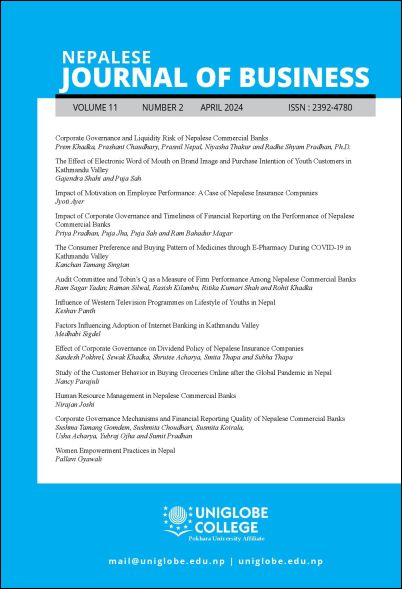Women Empowerment Practices in Nepal
DOI:
https://doi.org/10.3126/njb.v11i2.68792Keywords:
self-efficacy, leadership skill entrepreneurial skills, access to resource, insurance service, financial independency, women empowermentAbstract
This study examines women empowerment practices in Nepal. Financial independency is the dependent variable. The selected independent variables are self-efficacy, leadership skill, entrepreneurial skills, access to resource and insurance service. The primary source of data is used to assess the opinions of the respondents regarding the women empowerment practices in Nepal. The study is based on primary data of 126 respondents. To achieve the purpose of the study, a structured questionnaire is prepared. The correlation coefficients and regression models are estimated to test the significance and importance of women empowerment practices in Nepal.
The study showed that leadership skills have a positive impact on financial independency of Nepalese women. It indicates that better the leadership skills, higher would be the financial independency of the women in Nepal. Similarly, self-efficacy is positively correlated to financial independency. It means that increase in self-efficacy leads to increase in financial independency of the women. Similarly, access to resources has a positive relationship with financial independency. It implies that access to resources to women leads to increase in financial independency. The result also revealed that entrepreneurial skill has a positive relationship with financial independency. It indicates that enhancing entrepreneurial skills of women leads to increase in financial independency of women. In addition, insurance services are positively correlated with financial independency. This reveals that better insurance services to the women leads to increase in financial independency.




